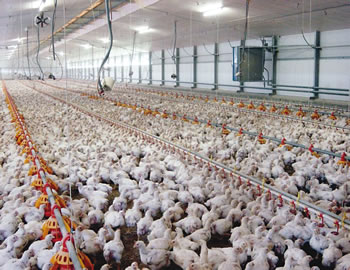RECENTLY, some poultry farmers in the northern part of the country lamented the threat posed by the alleged sudden entrance of a multinational agricultural giant, Olam, into the production of eggs and chickens. According to the farmers, Olam’s poultry feed mill and hatchery farm in Chikpiri Gabas, Kaduna State, had ventured into the production of eggs and chickens. It will be recalled that the Olam poultry feed mill and hatchery farm was commissioned by President Muhammadu Buhari in 2017 to produce poultry feeds and chicks for local poultry farmers. At the time, its Middle East International Business Head, Mr. Vinod Kumar Mishra, had stated that the multi-million dollar investment would utilise around 180,000 tonnes of corn and 75,000 tonnes of soya beans for its feed production. According to him, the company had the capacity to produce 360,000 tonnes of animal feeds every year, and that it would also produce 1.6 million day-old-chick every week. In addition, it would boost the production of maize and soya beans as well as the development of the Nigerian poultry and aquaculture sectors.
Olam International, a leading agri-business operating across the value chain in 70 countries, invested $150 million in the project. Governor Nasir El-Rufai, while performing the ground-breaking ceremony at Chikpiri Gabas village in April 2016, had said that the project was not about the size of its facility but the employment opportunities that would be created in building and running the poultry project. However, prior to its commissioning by President Buhari, the poultry farmers had expressed concern that the agric giant would go into full chicken farming, which could force them out of business. According to a document prepared by the farmers, poultry feed in the North is controlled by the company, and local hatcheries and feed mills currently operating in the region are facing extinction. According to the document, the poultry layer farms proposed by Olam with the objective of becoming the largest egg producer in West Africa would force local producers in the North out of business even though the zone has nearly reached self-reliant status in egg production.
The poultry farmers alleged that Olam was giving certain poultry farms a number of chicks while also providing them with feeds, medication and other expertise. During harvest, the company would collect the birds and deliver them to markets. Reacting to the farmers’ allegation, however, Olam’s management assured the company would limit its scope to feed and chick production. Dr Vinod Kumar Mishra, Olam’s General Manager, (Animal Feeds) said: “How can we be in competition with our customers? We will only produce and sell feeds as well as day-old chicks for local poultry farmers.” To all intents and purposes, the allegations by farmers that the multinational company has started raising chickens on its own requires a comprehensive investigation. Olam as a multinational firm has a mandate to operate feed mills and hatcheries, a venture in which it has acquired fame both for its expertise and its commitment to lofty standards. However, the latest allegation that it is putting local farmers at a disadvantage cannot be wished away. It must be investigated and the true position of things made known by the government. The government needs to determine whether Olam, as its General Manager (Animal Feeds) indicated, has indeed kept to its mandate or gone out of its way to commit an outright illegality. Already, a number of experts in the agriculture industry are reportedly ruing the ugly phenomenon of a foreign investors getting involved in egg production.
Of a truth, Nigeria, the current global headquarters of poverty, needs foreign investors, whether they are portfolio investors or industrialists. But as it is well known, every government regulates business, including foreign investment, to ensure that the interests of its citizens are not jeopardised or imperilled. The country can certainly not place the entire poultry chain in the hands of a single company. Already, there is a climate of misunderstanding between Olam and local farmers in the North and this cloud can only be dispelled by a thorough and painstaking investigation. For instance, who are the operators of the local poultry farms with whom Olam has allegedly been colluding in order to raise chickens? Assuming that the allegation is indeed true, how and when did the company shelve its mandate in poultry feed production and hatchery to engage in the rearing of chicken? Government has a duty to provide answers to these questions, and very fast too.






